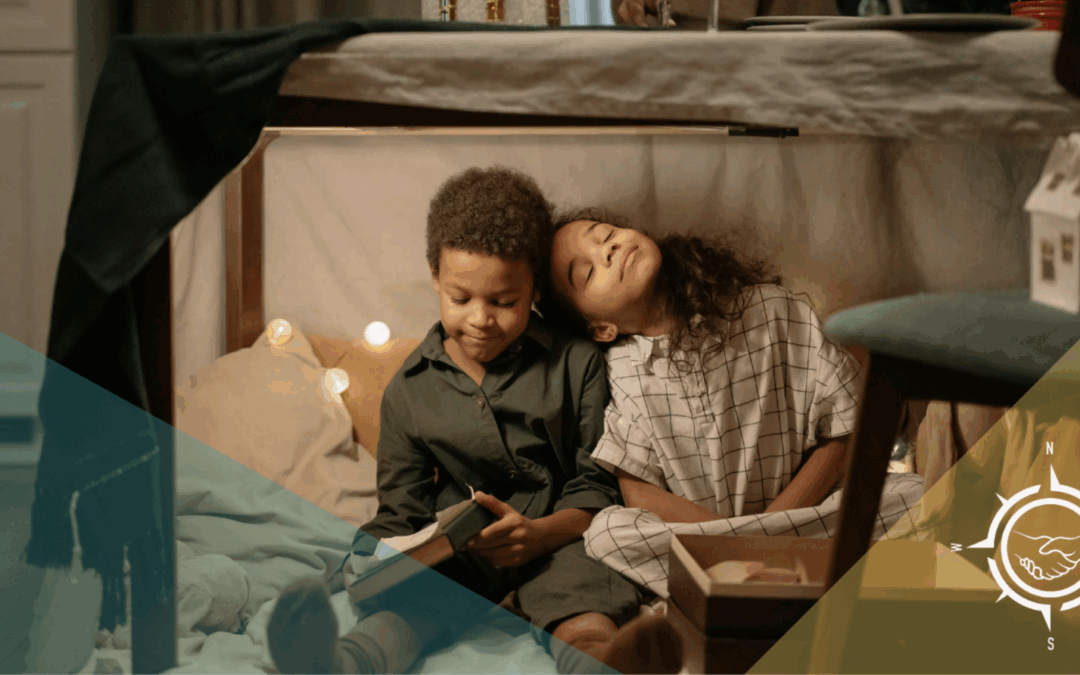5 Strategies for Creating Happier Holidays
For many kids, the holidays are a time of wonder and magic. But for some, including kids with trauma, it is a time of emotional turmoil. While the season advertises joyful festivities, these joyful feelings often collide with grief and even fear.
A Holly Jolly Reluctance
When joy and grief collide, it can lead to turmoil. Feelings such as uncertainty, overstimulation, and ambivalence can leave children with trauma reluctant to embrace the “holly jolly” holiday spirit.
But as a parent, you can offer comfort and joy to your child with trauma, helping them better embrace the holiday season through intentional preparation and compassionate planning to ease the struggles of the season.
Why the Holidays are Hard for Kids with Trauma
The holiday season can be difficult for children with trauma because of a few reasons. First, it is a disruption to the normal routine. Having to attend a holiday event can be unsettling and cause anxiety for children who need predictability to feel safe.
Second, family holiday gatherings can lead to exposure to family dysfunction. Whether it is witnessing an aunt and uncle exchanging terse words over a small disagreement or grandparents disagreeing with how you are raising your child, it can trigger difficult emotions and memories for your child.
Third, the holiday season is a sensory overload, even for those of us who have not experienced trauma. There is an overabundance of sights, sounds, and smells which can overwhelm a child’s nervous system, especially those with hypervigilance or sensory sensitivities related to their trauma.
Finally, the holiday season can lead to intense emotions and certain behavioral responses. A child with trauma may feel grief over the loss of the life they once had, even if it wasn’t a great home life. Other emotional and behavioral responses besides grief include:
- Anxiety: due to feelings of anticipation; can lead to feelings of being overwhelmed, particularly for those who previously experienced scarcity may feel overwhelmed by the abundance of the holiday season
- Hypervigilance: due to disruption of routine
- Withdrawal: a form of protection from triggers
- Hyper-responses: lashing out due to triggers; includes behaviors such as aggression or irritability
- Hypo-responses: a form of protection from triggers; includes withdrawal, isolation, and even depression
Strategies for Creating Happier Holidays
Now that we have a better understanding of why the holiday season can be so difficult for children with trauma, let’s talk about ways you can provide comfort and joy while creating happier holidays with your child.
1 | Shift Your Expectations
You may want to create the perfect holiday for your child, but what is perfect to you may be different than what your child needs to feel safe and loved. So shift your expectations of what your holiday season will look like and recognize that your child may not be happy or even enjoy the holidays–and that’s okay!
2 | Provide Consistency
Sticking to your routine as much as possible is key to limiting dysregulation. Simply going on break from school can be upsetting for children who crave routine for safety and predictability. When you do something out of the ordinary, like picking out a Christmas tree or attending an extra holiday sermon, talk to your child beforehand about what they can expect.
3 | Buy Less
Children with trauma often have a scarcity mindset. In other words, they are used to having less, so an overabundance during the holidays can be overwhelming. And children with attachment trauma often rely on things rather than people to measure love. Consider buying less or making gifts something that can be done together as a family, such as movie tickets.
4 | Have an Escape Plan
Holiday gatherings or activities can lead to dysregulation and exhaustion. Having an escape plan is important to help get your child out of stressful and triggering situations and experiences. Make your plan in advance, and don’t just wing it.
5 | Notice Brave Moments
The holidays are hard for children who default to defense mode. So remember to celebrate the little things, like handling a change in routines or plans, sharing with a sibling, or even getting in the car without complaint.
Final Thoughts
Things will never go as envisioned, especially when you have a child with trauma. Remember that you as the parent will need to be willing to change your holiday activities and expectations to meet your child where they are. Things will go wrong, so take some deep breaths and help your child self-regulate. But most of all, plan ahead for a different way to do the holidays and talk to your child about what to expect before the holiday season arrives to help prepare them. Finally, be there for your child when they need you, and show them that you can be that safe, comforting place when the world around them seems overwhelming.


